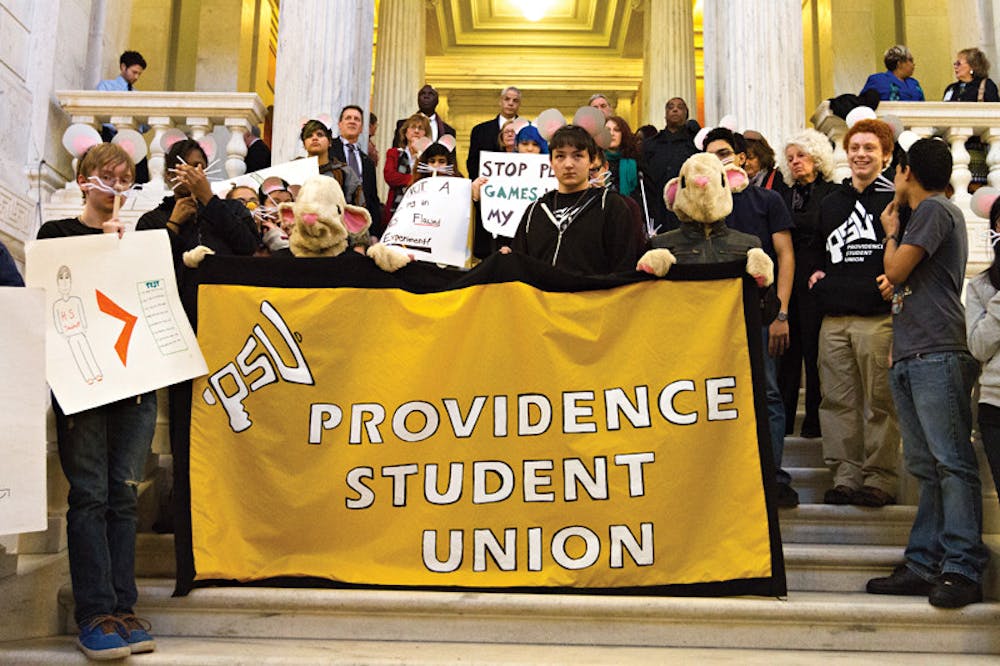Members of the Providence Student Union gathered yesterday at the Statehouse to protest the New England Common Assessment Program, a state-wide standardized test recently incorporated into high school graduation requirements. Student representatives from Hope High School, The Met School and Dr. Jorge Alvarez High School donned mouse ears, whiskers and guinea pig masks to protest the experimental nature of the program.
The event was held two days prior to the release of the latest NECAP exam results, which will determine if current seniors who took the exam for the second time in October qualify to graduate in the spring. In order to receive a high school diploma, students must either score at least “partially proficient” on the exam or demonstrate improvement in a second or third testing attempt.
The results, released this week, will determine whether the 4,000 Rhode Island high school students at risk of not graduating have demonstrated enough improvement to receive a diploma, or whether they will need to take the spring NECAP or submit alternative test scores — such as an AP or SAT scores — in a final attempt to meet the requirement.
Jose Serrano, a sophomore at The Met School, addressed the crowd first, explaining the motivation behind the event, which the union called “Operation: Guinea Pig.”
“The reason we are dressed like guinea pigs and lab rats is simple — that is how we are being treated,” Serrano said. “(The Rhode Island Department of Education) had a hypothesis — that high-stakes testing alone, without the extra resources our schools need, would solve our educational problems and radically improve our proficiency. But this was nothing more than an experiment.”
RIDE released a waiver this month stipulating that students admitted to selective two-year or four-year colleges could graduate without passing the test. Members of the Providence Student Union at the protest characterized the new stipulation as further proof that the NECAP was implemented without evidence of its effectiveness.
“(The NECAP) was an unproven gamble, which is becoming clearer with every exemption and waiver and backtrack that RIDE releases,” Serrano said.
In clear view of on-looking Statehouse officials, Serrano and his classmates performed a skit in which a student brandished a large needle with the words “NECAP” and symbolically injected her peer with “high-stakes testing.” One student came forward with a McDonald’s worker’s hat to illustrate the underachievement students fear may occur from the testing. Finally, gathering together and waving “No more NECAP” signs, the protesters began to chant in unison, “High stakes testing is not right! That is why we have to fight!”

ADVERTISEMENT




